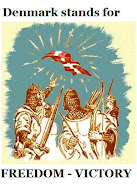The electorates in France and Holland rejected the EU constitution in 2005 and then the EU changed the text in the best Soviet Style of affairs, incomprehensible filled with Eurocratic NewSpeak in a Kafkasque nightmare construed for a 'coup d'etat' in a chlorophormed slow-motion.
NewSpeak in a Kafkasque nightmare construed for a 'coup d'etat' in a chlorophormed slow-motion.
Removing the electorate from the political decisions is the end of democracy in Europe and amounts to treason while installing a beaurocratic behemount of a Supranational Totalitarian state where we, the Europeans are reduced to masses in the best Stalinist Style under a suppressive and perverse social engineering experiment equal to Stalin's population movements which was necessary to destroy the former nations identities and cultures under the evil Empire of the USSR - Today they call this abomination of Cultural Marxism multiculturalism, an Orwellian NewSpeak perversity, in order to implement multiculturalism you have to destroy the host culture, just like Stalin he did, about a 100.000.000 people died.
All eyes are on Ireland, the feeble hope for Democracy in Europe, one wonders what kind of oppressive stealth measures the EUSSR will implement if it becomes a 'No', some EU countries like Sweden, Britain and Holland are morphing into something similar as nation wide Gulags of 'political correctness', Lenin's invention he introduced on the Communist Party congress in 1921.
From: The Telegraph
By Gordon Rayner
In 1973, when Ireland joined what is now the European Union, it was the poorest country on the continent. Today, thanks in no small part to £32 billion in EU grants, it is the second richest per capita (after Luxembourg).
So the result of a referendum on June 12 on whether to consolidate EU powers by ratifying the Treaty of Lisbon must surely be a foregone conclusion.
Treaty of Lisbon must surely be a foregone conclusion.
Think again.
Despite every major political party backing the Yes campaign, support for a No vote is growing daily.
The most recent poll put the Yes voters at 41 per cent and the No voters at 33 per cent.
That sounds like a healthy lead until you discover the Yes campaign was polling well over 50 per cent on the eve of another Irish EU referendum – on the Nice Treaty in 2001 – before the electorate delivered a resounding No.
In Brussels, European parliamentarians are twitchy about the future of the EU's 495 million citizens resting in the hands of the one million Irish voters expected to turn out on polling day.
Having spent two years rebuilding the Treaty of Lisbon from the scrap parts of the defeated European Constitution, the Eurocrats can only watch as a learner driver takes the wheel of their juggernaut and drives it towards the edge of a cliff.
This scenario has arisen because, while all 26 of the other member states have decided to wave through the treaty via their parliaments (the UK included), Ireland alone has a legal obligation under its constitution to put the matter to a public vote.
Because the treaty must be passed unanimously by all 27 member states, an Irish No vote would kill it.
Earlier this week, the European Commission president, José Manuel Barroso, suggested a No vote would be catastrophic for the EU.
"We will all pay a price for it, Ireland included," he said, adding that there was "no plan B" if Ireland exercised its veto.
Mr Barroso and his cohorts argue that the treaty represents the next glorious stage in the EU's future, creating a new post of full-time European Council president, streamlining the European Commission and redistributing voting powers.
If you don't find these allegedly crucial changes inspiring, you're not alone.
And therein lies the fundamental problem for Ireland's Yes campaigners. Try as they might, they have been unable to come up with anything approaching a coherent, inspirational argument for a Yes.
Most tellingly of all, the new Irish premier, Brian Cowen, has admitted he hasn't read all of the 287-page treaty, and nor has Ireland's EU Commissioner, Charlie McCreevy, who said no sane person could read it from cover to cover.
Asked to sum up why the Irish should support Lisbon, Micheál Martin, director of the referendum campaign for one of the big three parties, Fianna Fáil, said: "First of all, the purpose of the treaty is to ensure that the EU is reformed so that it is more efficient and effective in meeting modern challenges…"
Cue widespread yawns from voters. And the leaders of the other main parties have been equally soporific, leaving an open goal for any No campaigner with the charisma and ability to play on popular fears.
Such a man is Declan Ganley, a multi-millionaire businessman who formed the campaign group Libertas to fight first the European Constitution and now the Lisbon Treaty.
Along with such powerful voices as the Irish Farmers Association and leaders of the Roman Catholic Church, he has given voters a dizzying array of reasons to vote No.
The farmers, who have received two thirds of Ireland's EU subsidies, argue that their handouts will be drastically cut, devastating rural areas.
Pro-life groups say Ireland will be forced to relax its abortion laws, pacifists say Ireland's cherished neutrality will be in danger because of provisions for a European army, and patriots say Ireland will be giving up the independence it fought so hard for less than 100 years ago.
On top of all that, there are fears that a centralised taxation system will mean the end of Ireland's favourable 12.5 per cent corporation tax (compared with the UK's 28 per cent), which has helped attract so many businesses.
John McGuirk, a leading member of Libertas, told me: "We will lose huge influence if Lisbon is ratified and we will get nothing in return.
"It will open the doors for Europe to interfere in our taxation system, and it will place huge restrictions on what rights we have to set our own laws."
While the treaty may yet get a Yes vote – the online bookmaker Paddy Power is offering odds of 1-4 for, 5-2 against – it all depends on whether the voters turn out on the day.
There is a real danger that apathy will prevent pro-Lisbon support being transformed into votes.
Éanna Nolan, a 38-year-old civil engineer, told me: "I am tending towards voting Yes, if only because the Yes campaign has the backing of all the major parties, whereas the No campaigners are people like Sinn Fein and [the singer] Dana."
Miriam Laird, a 28-year-old accountant, said: "I've always been pro-Europe, so I'm in favour of the treaty."
Yet both of these voters were not sure whether they would even bother to turn out on polling day.
In contrast, the No campaign supporters I spoke to were clear about their reasons for turning down the Lisbon Treaty – and about their intention to cast a vote on June 12.
Pádraig De Faoite, 22, a student teacher, said: "We're giving away our democracy and we have no idea what's going on in Brussels. On top of that, migrant workers will be able to come in from all over Europe and undercut Irish workers, so it will cost jobs."
Ide Nic Mhathuna, 24, an office administrator, cited the plight of Ireland's fishing industry, which has all but disappeared under the EU, as one of her reasons for voting No.
"A friend of mine who is a fisherman appeared in court this week for catching too many fish in the Irish Sea," she said.
"He's going to have a criminal record now, and it's crazy."
If Ireland rejects Lisbon on the basis of what might be termed parochial reasons – say, abortion or farming subsidies – and the vote is close, the country could be given opt-outs that would salvage the treaty.
But if it votes No by a substantial margin, and the reasons for doing so are varied, it will be impossible to resuscitate the fatally wounded treaty.
The EU will be faced with the prospect of starting all over again with a new document several years hence, or trying to bring in changes one by one.
Such an outcome would not, arguably, be a disaster (the EU has managed to keep functioning despite the 2005 Constitution being rejected) but it would leave European leaders with serious questions about the union's future.
The fact that France and Holland rejected the European Constitution in 2005 was a clear warning that support for the project among ordinary people may be waning.
This time, only Ireland has dared risk asking what people think. And if a country that has benefited so clearly from EU membership decides to distance itself from Brussels, it would be proof positive of just how far disillusionment with the EU has spread.


































































